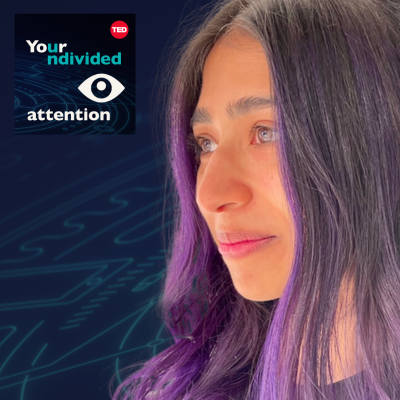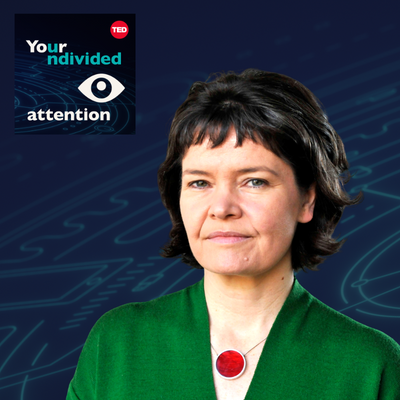Episode 68 | May 25, 2023
The Tech We Need for 21st Century Democracy with Divya Siddarth
Democracy in action has looked the same for generations. Constituents might go to a library or school every one or two years and cast their vote for people who don't actually represent everything that they care about. Our technology is rapidly increasing in sophistication, yet our forms of democracy have largely remained unchanged. What would an upgrade look like - not just for democracy, but for all the different places that democratic decision-making happens?
On this episode of Your Undivided Attention, we’re joined by political economist and social technologist Divya Siddarth, one of the world's leading experts in collective intelligence. Together we explore how new kinds of governance can be supported through better technology, and how collective decision-making is key to unlocking everything from more effective elections to better ways of responding to global problems like climate change.
Correction:
Tristan mentions Elon Musk’s attempt to manufacture ventilators early on in the COVID-19 pandemic. Musk ended up buying over 1,200 ventilators that were delivered to California.
Major Takeaways
Collective intelligence can help us solve thorny issues in an imperfect but meaningful way. Wikipedia’s system of collective editing allows us to arrive at a process for adjudicating the truth, and Taiwan deployed amateur fact checkers to combat misinformation from China, for example.
Collective intelligence is a wide-ranging field with natural origins. It can be observed among root systems and bee swarms as well as the technologies and processes through which we make and execute major collective decisions. Examples include democracies, markets, and institutions.
Newer collective intelligence systems may help address some of our thornier issues when it comes to democracy. Here’s a rundown of some new mechanisms we can use to upgrade democracies: Ranked choice voting improves fairness in elections by allowing voters to rank candidates in order of preference. Sortition is the election of public officials using a random representative sample; those selected to serve can prioritize studying specific policy decisions instead of campaigning. In a liquid democracy, citizens delegate their vote to a person or institution who knows more about issues than they do.
Collective intelligence can unlock better ways to respond to global problems. It’s compelling to think of liquid democracy, for example, in the context of governing social media platforms - content moderation could be delegated to a trusted person or organization. Liquid democracy makes use of our instinct to delegate decision-making when we ask opinions of others.
Other recommended reading
Against Democracy by Jason Brennan
A provocative challenge to one of our most cherished institutions
Ledger of Harms
Technology platforms have created a race for human attention that’s unleashed invisible harms to society. Here are some of the costs that aren't showing up on their balance sheets
The Wisdom Gap
This blog post from the Center for Humane Technology describes the gap between the rising interconnected complexity of our problems and our ability to make sense of them
DemocracyNext
DemocracyNext is working to design and establish new institutions for government and transform the governance of organizations that influence public life
CIP.org
An incubator for new governance models for transformative technology
Ethelo
Transform community engagement through consensus
Kazm’s Living Room Conversations
Living Room Conversations works to heal society by connecting people across divides through guided conversations proven to build understanding and transform communities
The Citizens Dialogue
A model for citizen participation in Ostbelgien, which was brought to life by the parliament of the German-speaking community
Asamblea Ciudadana Para El Clima
Spain’s national citizens’ assembly on climate change
Climate Assembly UK
The UK’s national citizens’ assembly on climate change
Citizens’ Convention for the Climate
France’s national citizens’ assembly on climate change
Polis
Polis is a real-time system for gathering, analyzing and understanding what large groups of people think in their own words, enabled by advanced statistics and machine learning



